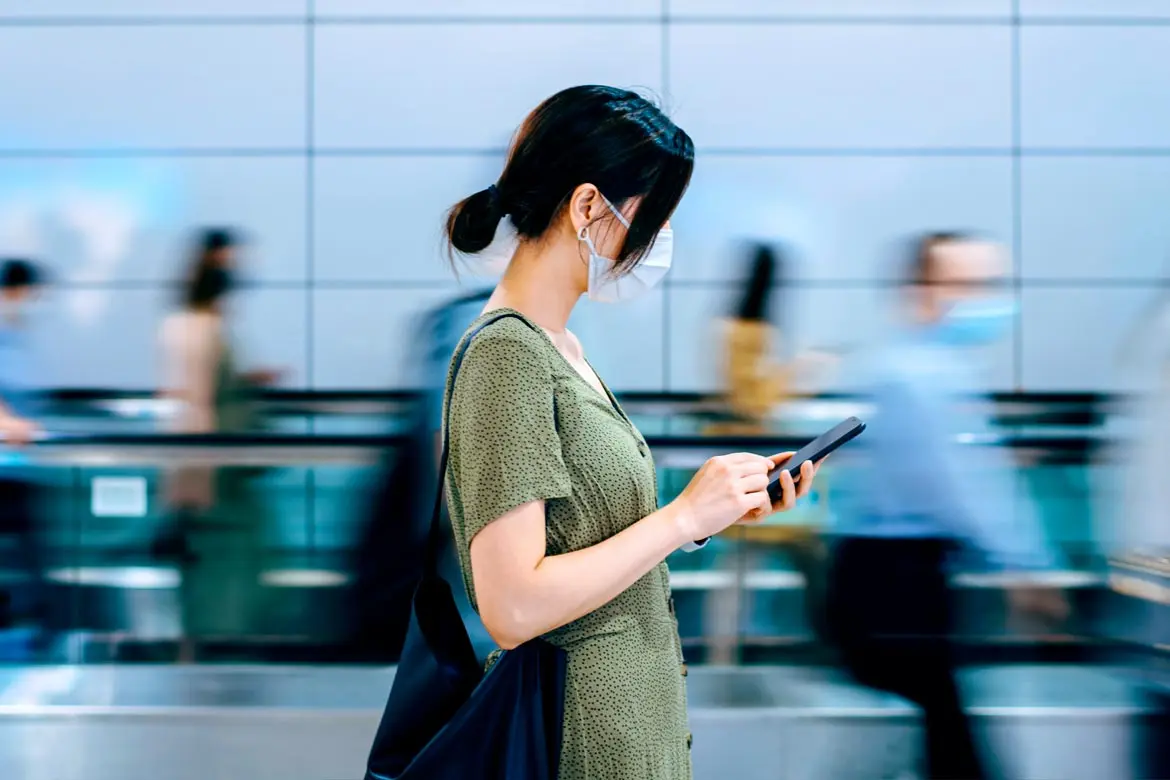Serene Wee Xue Jia
General Practitioner


Source: Getty Images
General Practitioner
As we approach 3 years living with COVID-19, it is undeniable that the virus has significantly changed the way we live, work, socialise and impacted the moments in-between. It has been a challenging time, but it is also worth celebrating how far we have come and the milestones we have achieved.
Just as important, is reflecting about the behaviours we have adopted while adapting to the virus. the good, the bad, and the important lessons we should learn as we continue to live with COVID-19. Read on as Dr Serene Wee, general practitioner at the Parkway Shenton Medical Clinic at Robinson Road, sheds light on these topics.
As we continue to see COVID-19 cases in Singapore, it is important to be aware about the potential long-term effects an infection has on our health. Symptoms include:
Should these symptoms persist, worsen or should new symptoms appear, get in touch with a doctor for a medical assessment so the condition can be appropriately managed.
The healthcare sector has been rapidly evolving to respond to COVID-19. From managing COVID-19 cases in foreign worker dormitories, to managing COVID-19 patients in the community, we have seen our healthcare staff go above and beyond to attend to patients while pushing through high case-loads.
Some key initiatives that helped support the fight against COVID-19:
As COVID-19 swept the nation, we have inadvertently seen new behaviours and habits surface in response. We survey some of them and their impacts.
1. Obesity
While work from home arrangements offer flexible work timings, we have seen an increase in the number of individuals gaining weight. This has likely occurred due to the following habits that become easy to fall into given the absence of an official reason to leave the home:
As a result of obesity, individuals are at greater risk of facing conditions such as high blood pressure, high cholesterol and diabetes.
2. Vitamin D deficiency
As people have also been staying indoors more during this time, less exposure to sunlight may result in them facing a Vitamin D deficiency. This can affect the elderly especially adversely, as this deficiency is associated with osteoporosis and affects bone and muscle health.
3. Mental health concerns
Due to COVID-19 restrictions, particularly due to limitations in group sizes, restrictions to home visits and activities such as dining in at restaurants, attending religious services and exercising at gyms, social interactions between family and friends took a hit.
For those who relied on these activities as their main source of physical and mental support, this void left them more susceptible to mental health issues like anxiety and depression.
For the less tech savvy older population, the challenge was two-fold. Being unable to transition to a virtual platform to catch up on their social meetups and attend community services or gatherings, they were especially prone to being isolated from their loved ones and community.
While the pandemic has exposed us to various negative behaviours and its resulting implications, it has also taught us positive practices that we can continue to apply to our living and working situations.
1. Reduction in other transmissible diseases
During the pandemic, there was a significant reduction in other transmissible diseases like influenza flu, viral gastroenteritis and also hand foot and mouth disease. Proper hand hygiene such as washing and sanitising our hands regularly has prevented transmission of viral gastroenteritis and hand foot and mouth disease, while mask-wearing prevented transmission of influenza virus through respiratory droplets.
People also learnt to be more socially responsible by isolating themselves at home when ill to prevent the transmission of illnesses.
2. A nudge towards vaccinations
There was also increased awareness to get vaccinated to protect ourselves, and our loved ones. More people sought to get vaccinated against the influenza, on top of COVID-19 vaccines.
Looking back, we've certainly come a long way in our efforts to fighting COVID-19 in Singapore. Faced with challenges, we have also seen the rise of new behaviours to adapt and evolve – some to our benefit, while some at the expense of our physical and mental health.
Ultimately, it is up to us to discern which habits we should take with us into the future, whether it is going for that run right before starting your work day, or spending more quality time our loved ones. Here's to living more mindfully so you can make the most of your journey ahead as we continue to live with COVID-19!